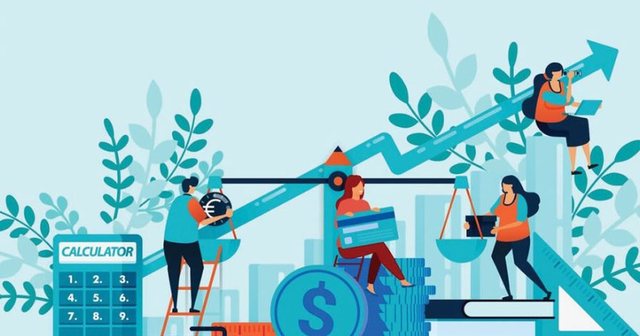
 Flash News
Flash News
Imam Ahmed Kalaja faces up to 3 years in prison, accused of obstruction of justice
Pyrotechnics near the Polytechnic University, police seize materials and launch investigations
Shots in Allias, the 31-year-old is shot by the neighbor, the perpetrator disappears after the incident
Posta e mëngjesit/ Me 2 rreshta: Çfarë pati rëndësi dje në Shqipëri
HIV on the rise in Kosovo, 10 new cases recorded in five months
The economy of minimalism, how Albanians are radically changing the way they spend

In a world ruled by aggressive advertising, the consumer economy, and the desire for more, minimalism has emerged as an antidote to overconsumption.
In recent decades, globalization and digitalization have brought a huge boom to the consumer industry, driving quick and continuous purchases.
Custom ads, ecommerce designs, and ongoing offers have created an environment where consumption is seen as a lifestyle and a reflection of personal success.
However, as a response to this culture of overload, minimalism is gaining more and more popularity, especially among the younger generation.
By choosing to limit impulse purchases and focus on quality, even as an economic choice, people are embracing a more sustainable approach, prioritizing experiences over materialism and reducing environmental impact.
Minimalism is changing the way individuals spend, directly impacting entire industries, from fashion to real estate and technology. As traditional companies face a more conscious and selective market, brands that adapt to this philosophy, offering more sustainable products with a longer lifespan, are seeing significant growth.
According to economics expert, Selami Xhepa, "if more people practice minimalism, then less is consumed.
Here we must ask: less of what? If minimalism means reducing the consumption of fast goods and usable products, then the fast-consumer products industry can be hit, as well as the fast-fashion sector in trade. This is an immediate effect.
In the longer term, even the most durable goods can be affected. For example, families may choose to use the same car for a few more years, rather than replacing it after five or ten years as usual. As a result, jobs in these industries (trade, automotive, manufacturing, etc.) may be lost.
However, if there are fewer expenses, this will lead to more savings. Banks will hold higher deposits, which can be invested in other sectors, such as energy, real estate, agriculture, etc.
As a result, jobs in these sectors will increase. Also, it can be argued that individuals can choose to invest their savings directly via various ways.
Minimalism does not mean that consumption is completely banned; It simply means that some types of consumption are reduced, such as physical goods, while others can be increased, such as knowledge services.
Therefore, it can be said that minimalism helps to relocate jobs, creating opportunities in other areas." - he says.
Sociologist Marsi Simo points out that socially minimalism is considered a blow to the idealism of appearance.
"It is important to note that we live in a society that gives a false value to owning more things, while at the same time does not leave us enough time to enjoy them. Constantly raising standards to have something bigger and better is an endless cycle.
There will always be a nicer car to buy or a bigger house. It may seem like a big challenge at first, but once you start breaking free from life built around owning more things, you'll see the stress disappear and the world slow down.
The choices you make will help shape a new way of life, which can bring about fundamental changes in your life," she concludes.
From overload to self-restraint
Minimalism is not a new concept. Eastern philosophies, such as Zen Buddhism, have always promoted the idea of living with less. However, in the 21st century, it has become a form of resistance to overconsumption and overflowing with material things.
Documentaries like "Minimalism: A Documentary About the Important Things" and books by authors like Marie Kondo have popularized the idea that "less is more."
This approach has directly impacted consumption patterns. Consumers are becoming more cautious with their purchases, investing in more quality and sustainable products, rather than following the impulses of fast-paced consumption.
As a consequence, the fast fashion and everyday consumer products markets are facing a revision in demand.
According to marketing expert, Suela Gjati, minimalism has changed the way brands communicate with consumers.
"Previously, marketing focused on creating the need for continuous purchase. Today, the informed consumer demands more authenticity and real value. But minimalism isn't just about cleaning the house from excess items or more conscious purchases.
It is a philosophy of life that embraces simplicity in every aspect, from the way we organize the day, to social commitments and the way we receive information.
In an era where we are bombarded with endless incentives from social media to professional requirements, minimalism becomes a means to regain control over our time and mind," adds Mrs. S. S Tall.
This trend is also affecting technology, with a growing interest in "digital minimalism", a concept promoted by author Cal Newport.
Many people are looking to reduce screen time, filter the information they consume, and limit unnecessary digital interactions to create a healthier balance between online and real life.
On the other hand, this transformation has major impacts on the economy and the marketing industry. Companies are realizing that today's consumers no longer tend to buy without criteria, but are looking for authenticity, transparency, and lasting value.
"Brands that understand this shift and adopt more sustainable strategies will survive in an increasingly conscious market," says Suela Gjati.
From Ownership to Experiences
The Gen Z generation and a portion of Millennials have fundamentally changed the way they spend. Instead of investing in expensive properties or cars, they prefer to spend the money on experiences like travel, concerts, food, and social activities.
This trend has also been reflected in the rise of services such as Airbnb, Uber, and other platforms that offer access to services without the need for ownership.
According to Ilirida Travel, a travel agency in Tirana, young people of the Gen Z generation are traveling more than ever before. They prefer to explore new destinations, experience different cultures, and invest in memories, not material possessions.
"This trend has led to significant growth in bookings for short trips and personalized experiences," they claim.
Moreover, this generation has changed the way it interacts with brands. They seek products and services that align with their personal values, prioritizing sustainable, ethical, and environmentally responsible brands.
This has forced businesses to change their approach, creating more responsible models of production and consumption.
Adventure tourism is also growing significantly among young people.
"The younger generation is increasingly attracted to nature activities and exploring Albania through adventure tours. They are looking for unique experiences, away from mass tourism, such as hiking in the mountains, rafting and camping", says Neri Ibi from "My Albania Nature Explorer".
The increase in interest has fostered the development of the sustainable tourism sector, making Albania a favorite destination for young explorers.
Overall, transforming consumer behavior has major impacts on the economy, industry, and how companies operate. Today's young people no longer tend to buy without criteria, but seek authenticity, transparency, and experiences of lasting value. This is dictating new rules for the market and business models of the future.
Impact on the industry: who wins and who loses?
Minimalism has created challenges for some sectors of the economy, while it has opened up new opportunities for others. In this particular case, fast fashion is facing great challenges, as consumers tend to avoid fast and cheap purchases in favor of more quality and sustainable products.
Additionally, the second-hand clothing market is experiencing significant growth, affecting the decrease in the production of new clothing and the increase in the value of reusable products.
The trend is also evident in the furniture and interior design industry. Ilir Linza, a representative of "BestSeller" furniture, says that minimalists are increasingly choosing small, functional and multi-purpose furniture.
"Consumers today no longer buy mass furniture or overloaded furniture. Instead, they're looking for products that fit into small spaces and a more practical lifestyle. This is especially evident among young people living in small apartments or in environments with limited space.
We've seen a significant increase in sales of folding tables, modular shelves, and sofas that have hidden storage spaces. It is an approach which is not only about design, but also about functionality.
Today, people do not want to fill their homes with furniture that they do not use every day," he says.
Moreover, Mr. Linza notes that minimalists don't compromise when it comes to quality:
"Even though they choose less furniture, they look for better products. For example, our customers prefer hardwood and natural materials instead of cheap and temporary options.
They are willing to pay more for a piece of furniture that will last longer, rather than changing the furniture every few years," he adds.
On the other hand, architect Megi Hoxha explains that the change in preferences has led to a significant increase in the demand for minimalist furnishings and more functionally designed spaces.
"Young people today no longer want houses loaded with numerous furniture and accessories. They prefer open spaces, well-lit and with few elements, but carefully chosen.
For example, many of my clients choose multifunctional furniture, such as: a bed with storage space underneath it, a dining table that also serves as a work desk, or a sofa that turns into a bed for friends who come to stay," she says.
Ms. Hoxha adds that minimalists often prioritize functionality and the feel of space:
"Minimalism means not only fewer objects in the house, but also a greater sense of harmony and freedom. A room overloaded with furniture can create visual and psychological stress, so many young people choose to keep only necessary and functional things.
Scandinavian and Japanese design are the main inspirations, as both of these styles emphasize visual purity, natural light and simple materials," she points out.
This shift towards minimalism shows that consumers are becoming more aware of the quality and long-term impact of their purchases, favoring businesses that offer well-thought-out and sustainable products.
While the furniture and architecture sector is adapting to this change, the mass-produced and inexpensive furniture industry may face ever-increasing challenges in the future.
Minimalism does not necessarily mean less consumption, but smarter consumption. Instead of buying every new device, minimalist consumers are looking for products with longer lifespan and multiple functionality.
This trend has prompted companies like Apple and Samsung to focus more on sustainability, repairability, and recycling. Vintage equipment trading programs and the use of recycled materials are some of the strategies that companies are using to address this change in consumer behavior.
Minimalism has also influenced the way people buy food and other everyday products. Consumers tend to choose products with less packaging, with sustainable sources, and with less waste.
Food and cosmetics companies are focusing on more natural, simpler, and less chemical-rich formulations, while the concepts of "zero-waste" and "refill stations" are becoming increasingly popular.
A long-term impact on the economy
Although some argue that minimalism can harm the economy by reducing consumption, the reality is more complex.
Consumption is not necessarily decreasing, but shifting towards a more conscious pattern. While cheap and mass-produced products can lose ground, quality and sustainable ones can gain loyalty from consumers.
According to economist Selami Xhepa, this change should not be seen as a decline in consumption, but as a reorientation towards more strategic spending. "Minimalism is not a transitory trend, but a reflection of changes in consumer mindsets.
People are becoming more cautious in their spending, avoiding impulse purchases and looking for products of sustainable value. This is an important transformation for the economy, because it orients it towards a more balanced model and less based on uncontrolled consumption," he says.
Mr. Xhepa emphasizes that this new mentality will also affect the businesses themselves: "If before, companies were based on a large and fast sales model, now their success will depend on the ability to offer quality products and sustainability in the market.
Consumers are demanding more transparency from brands, and this is affecting the way businesses operate. Companies that don't adapt to this change will find it difficult to survive."
While some sectors such as "fast fashion" or mass production may face challenges, others such as the customized products industry, functional furniture, and the reusable goods market will benefit. Mr. Xhepa predicts that this trend will also have long-term effects on the way economic resources are managed:
"Minimalism is also a response to a broader economic and environmental problem. In a world of limited resources, smart and sustainable consumption is a necessity and not a choice.
This is a factor that will shape the economy of the coming decades." / Monitor
Anti-consumption
The anti-consumption economy, driven by minimalism, is challenging the foundations of capitalism by questioning the unstoppable cycle of production and consumption. As more and more people are moving towards a simpler and more conscious lifestyle, companies are being forced to rethink their business models and focus on more sustainable and ethical solutions. This movement is not just a transitory trend, but reflects a profound shift in consumer attitudes towards consumption, ownership, and sustainability. Anti-consumption can be the key to a new economy, where pursuing more things is no longer the only measure of success.
Latest news


A quantity of pyrotechnic materials was found at the Polytechnic University.
2025-06-08 17:29:06
The tower that covers God with concrete
2025-06-08 17:00:43

Police take stock of May: 625 arrested and 415 thousand euros of assets seized
2025-06-08 16:15:37
Italy/ 16-year-old Albanian stabbed, investigations reveal first clues
2025-06-08 15:57:54



Citizenship referendum polarizes society in Italy
2025-06-08 14:38:51



Foreign tourist gets stranded on the beach, police intervene
2025-06-08 13:04:56


Five people are arrested in Kapshtica, four of them border policemen
2025-06-08 11:46:41
The Serbian team leaves Tirana under strong security measures
2025-06-08 11:20:25




Trump-Musk clash risks sinking NASA, biggest cuts in its history
2025-06-08 09:41:34




Temperature up to 38 degrees, weather for today
2025-06-08 08:21:33
Posta e mëngjesit/ Me 2 rreshta: Çfarë pati rëndësi dje në Shqipëri
2025-06-08 08:04:53
Albania-Serbia clash ends goalless, Manaj misses 'golden' chance
2025-06-07 22:42:40


Trump warns of 'consequences' if Musk funds political rivals
2025-06-07 21:29:11


14-year-old falls from 6th floor of apartment in Tirana
2025-06-07 20:28:07
"Old enemies don't make new friends"
2025-06-07 19:52:58




HIV on the rise in Kosovo, 10 new cases recorded in five months
2025-06-07 17:47:59
Fire in the waste field in Vlora, Berisha: Monstrous crime against citizens
2025-06-07 17:27:40

PL: The country's food safety system does not track food contamination
2025-06-07 16:40:37
Fire engulfs Vlora waste field again, mayor: Intentional
2025-06-07 16:20:06
20-year-old man ends his life in Pogradec, police reveal details
2025-06-07 15:47:29
Tourism without heritage: Durrës opens the season with museums closed
2025-06-07 15:27:30

Gjendet një person i pajetë në Tiranë
2025-06-07 14:54:23
Detailed control, the rules that fans must follow in the Albania-Serbia match
2025-06-07 14:32:19
A heat wave will sweep across Albania next week
2025-06-07 14:10:18





AMP checks at Kapshtica customs, drug found hidden in a vehicle
2025-06-07 12:15:26
Kosovo Assembly fails to be constituted even after 28 attempts
2025-06-07 11:58:58


Oh Albania, you have no old age!
2025-06-07 11:05:01


Mavraj's message to the Rossoneri: Kosovo is ours forever. Now play football
2025-06-07 10:10:52


Why are Ukrainians being accused of arson at Keir Starmer's properties?
2025-06-07 09:16:24
Foreign exchange, how much foreign currencies are sold and bought today
2025-06-07 09:04:55

Horoscope, what do the stars have in store for you today?
2025-06-07 08:31:29
Weather forecast for Saturday, here's what the temperatures will be like
2025-06-07 08:17:35
Posta e mëngjesit/ Me 2 rreshta: Çfarë pati rëndësi dje në Shqipëri
2025-06-07 08:01:23
Heavy metals in the Drin River, causes of cancerous diseases
2025-06-06 22:54:02


Works in Spaç, Lubonja: Destruction of collective and historical memory
2025-06-06 21:54:32

DASH: Balkans, part of American strategy for expelling migrants
2025-06-06 21:12:33

Ilir Shqina, a diplomat, and her business partner Grida Dumas were suddenly born
2025-06-06 20:21:46


Couple injured in Kavaja, police find firearm hidden in wall
2025-06-06 19:05:19

EULEX mandate in Kosovo extended until 2027
2025-06-06 17:58:20
These are the 3 zodiac signs that will be favored in the next decade
2025-06-06 17:50:52


Anthropology
2025-06-06 17:06:00
EU supports International Criminal Court after US sanctions
2025-06-06 16:47:51
Gonxhe ignores concerns about Spaçi and defends the continuation of the works
2025-06-06 16:31:42
Providing online services, report: Institutions, delays in update requests
2025-06-06 16:24:10

The head of the Vlora Cadastre is changed again
2025-06-06 15:58:49
With a rounded belly, Dafina Zeqiri enjoys the holidays with her partner
2025-06-06 15:36:06

Foods that should not be missing from the Eid al-Adha table
2025-06-06 15:04:48
They exploited girls for prostitution in Vlora, 28-year-old arrested
2025-06-06 14:44:26
